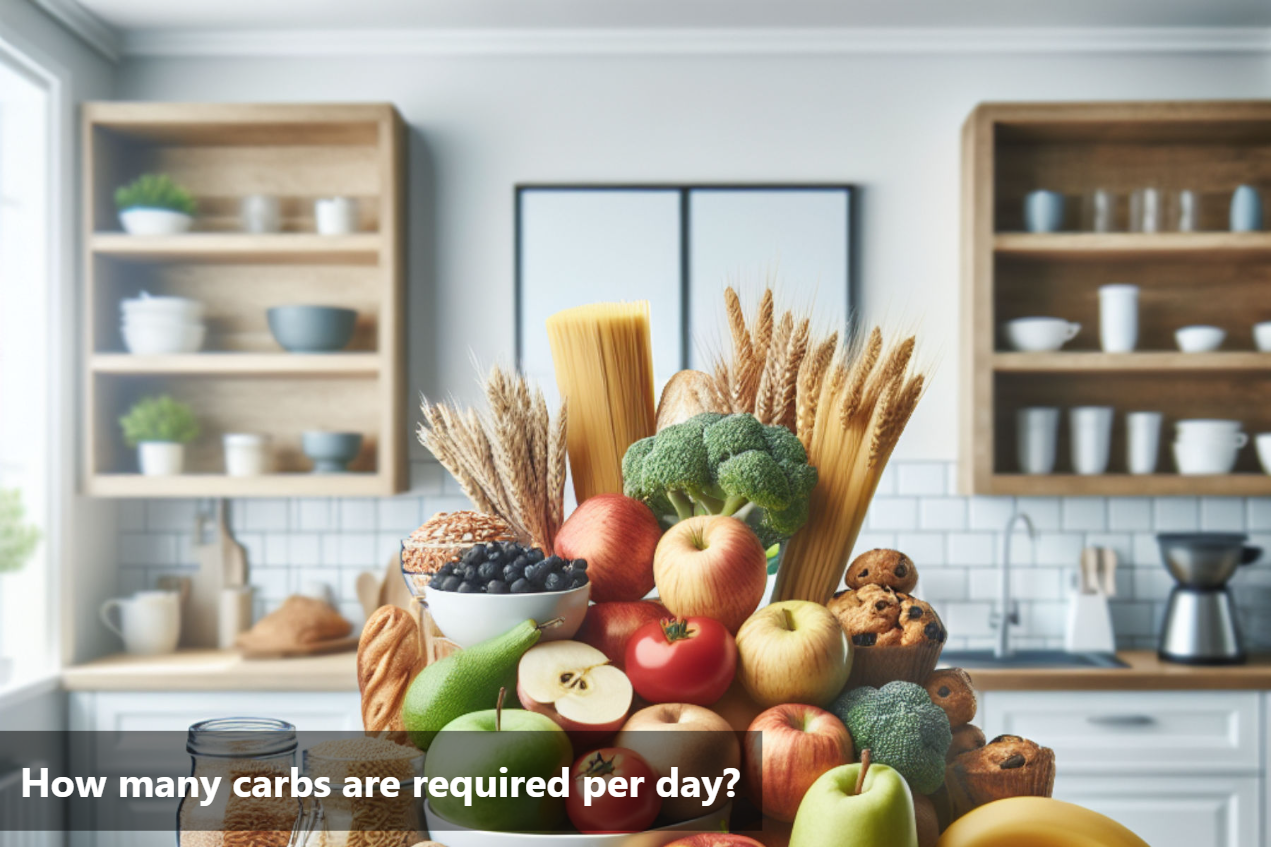
How many carbs are required per day?
Carbohydrates are one of the essential macronutrients the human body requires for energy. Carbs, found in various foods (sugars, starches, fibre), are necessary for energy, especially for physical activity and brain function. However, the amount you need daily depends on your age, gender, activity level, and overall health. Finding the proper carb intake can impact your energy levels, weight management, and overall well-being.

Factors Influencing Daily Carb Requirement
Carbs sometimes get a bad rap, but they're essential for energy, especially for the youth and those watching their health:
Age: Younger, active bodies generally burn through carbs faster than older adults.
Gender: Men often have a higher carb need due to muscle mass and metabolism.
Activity Level: Hitting the gym hard or having a physically demanding job? You might need more carbs to refuel.
Health: Conditions like diabetes can necessitate lower carb intake for blood sugar management.
Goals: Trying to lose weight or build muscle? Tailoring your carb intake can support these goals.
It's essential to consider all these factors to determine the appropriate amount of carbohydrates for optimal health and performance.
Calculating Your Ideal Carb Intake
Carbs are like gasoline for your body, but how much fuel you need depends entirely on you.
First, established resources like the Dietary Guidelines for Americans suggest 45-65% of your daily calories should come from carbs. This is a starting point; remember, it's not a one-size-fits-all answer.
The Institute of Medicine recommends 130 grams per day for adults, but factors like age, gender, activity level, and even pregnancy can impact this number.
The key lies in personalisation! By understanding your body type and considering your unique needs, you can determine the right carbs for your body to support overall health and well-being.
However, to calculate your carb requirement per day you can utilise these formulas:
Estimate your daily calorie needs: This can vary based on factors like age, weight, height, and activity level. You can find online calculators or consult a healthcare professional for a personalised estimate.
Calculate your carb range: Once you know your daily calorie needs, multiply that number by 0.45 (for the low end) and 0.65 (for the high end). This will give you the range of grams of carbs you could aim for per day based on the Dietary Guidelines.
For example, if your daily calorie intake is 2000 calories, the carb range would be 900-1300 grams (2000 calories 0.45 = 900 & 2000 calories 0.65 = 1300).
Healthy Sources of Carbohydrates
The amount of carbs you need depends on you, but what carbs should you be filling your plate with?
Focus on high-quality, nutrient-dense options that provide sustained energy and essential vitamins and minerals.
Fruits: Bananas, apples, and berries offer natural sweetness and fibre, perfect for curbing cravings and boosting energy.
Vegetables: Don't skimp on the veggies! Spinach, broccoli, and bell peppers are all low-calorie, high-fibre options packed with antioxidants.
Whole Grains: Quinoa, brown rice, and oats are superstars regarding complex carbs. They're loaded with fibre, vitamins, and minerals, keeping you full and energised.
Legumes: Lentils, chickpeas, and black beans are a double threat - offering both carbohydrates and plant-based protein. A great choice for vegetarians and meat-eaters alike!
By incorporating these healthy carbs into your diet, you'll meet your daily needs while nourishing your body with the good stuff. Remember, it's not just about quantity, it's about quality.

Bottom Line
Carbohydrates are crucial in our daily diet as they are the body's primary energy source. Factors such as age, gender, activity level, metabolic health, and personal goals must be considered to determine how much carbohydrates one should consume daily. It's essential to strike a balance that meets your energy needs while supporting overall health and well-being.
Incorporating various healthy carbohydrate sources like fruits, vegetables, whole grains, and legumes can provide essential nutrients and fibre necessary for optimal body functioning. These sources fuel our daily activities and contribute to a well-rounded and nutritious diet.
This Blog post is an initiative by Lo! Foods, to provide accurate and Nutritionist / Doctor approved information related to Health. Lo! Foods is India's leading brand for Everyday Functional Foods. Foods designed for specific Health conditions or Needs. Lo! Foods also runs India's largest range of Low Carb Healthy Cloud Kitchens, under the brand names of Lo!, ProteinChef, ATH (All Things Healthy) and DiabeSmart.









Leave a comment
Your email address will not be published.